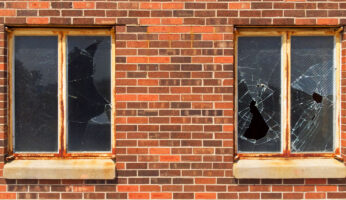Table of Contents
How does renters insurance work?
Renters insurance (which is also known as tenants insurance, contents insurance, and HO4 insurance) works the same way as most other types of insurance. Basically:
- You pay a small amount of money each month, called a premium, to a renters insurance provider.
- If your possessions get broken or stolen, or somebody sues you for an injury caused on your property, you file a renters insurance claim letting your insurance company know what happened. They’ll write you a check to cover most of the cost of the items or your attorney fees.
- However, you’ll still have to pay a small portion of the cost yourself. The amount that you pay is called the deductible.
- For renters insurance, the deductible is usually around $500, so if a power surge fries your $3,000 laptop, your provider will pay you $2,500. If you want to replace it, you’ll have to pay the rest.
How much does renters insurance cost?
On average, renters insurance costs around $15 per month, which makes it the cheapest kind of insurance. However, the price of renters insurance can vary significantly depending on where you live and how safe your home is.
What factors affect your monthly premiums?
Your premiums are affected by several factors, including:
- How much coverage you buy
- How safe your neighborhood and home are
- Whether your city commonly experiences extreme weather
- Whether or not you own any dangerous pets
- Whether you’re filed other insurance claims in the past few years
- How high your credit score is (although if you live in certain states, you might be able to get renters insurance with no credit check)
In general, if you live somewhere risky or seem like a risk yourself, you’ll have to pay for renters insurance, because in your insurer’s eyes you’re more likely to file a claim.
What does renters insurance cover?
Renters insurance covers your personal property, your personal liability, your guest medical bills, and your additional living expenses if something forces you out of your home for a while.
What that means
Personal property: If your possessions are lost or destroyed, your insurance company will pay for them. Think of a burglar breaking in and stealing your laptop, or a leaky pipe spilling dirty water all over your rug. If you have renters insurance, your provider will write you a check to replace those items.
Personal and medical liability: If you damage someone’s property and they take you to claims court, renters insurance will cover it. In terms of medical liability, renters insurance covers the medical bills of guests that get injured in your home. For instance, renters insurance covers dog bites – a common reason guests get injured – as well as other random accidents.
Guest medical bills: Similarly, if someone gets sick or hurt in your home, renters insurance will cover some of their medical expenses (usually capped at between $1,000 to $3,000) even if you aren’t held legally responsible. For instance, if you’re a college student with renters insurance, your provider will pay for your friend’s hospital bill if they drink too much at a party you’re hosting and need medical attention.
Additional living expenses: This is also called loss-of-use coverage in renters insurance. If something forces you to leave your home, like a gas fire that requires extensive repairs, your provider will pay for your hotel stay, meals, and other living expenses until you can move back in.
However, they won’t cover all of your expenses, just the additional costs that you incur. If you normally spend $200 per week on groceries, and instead you spend $350 eating all your meals in restaurants, they’ll pay the difference — $150 — but not the full $350.
What perils does renters insurance cover?
Renters insurance doesn’t cover every kind of disaster (known in the insurance world as a peril), but it covers the most common ones. Most policies protect you from:
- Fire
- Smoke
- Windstorms and tornadoes
- Lightning, hail and snow
- Gas explosions
- Theft
- Vandalism
- Falling trees
- Leaks, burst pipes, and other everyday water damage
- Mold that grows as a result of another covered peril
To learn more about covered perils, read our guide on what renters insurance covers.
Renters insurance coverage sometimes comes with perks
Some policies offer additional coverage options that you wouldn’t necessarily expect to come bundled with renters insurance. For example, when you buy renters insurance, many companies will offer coverage for identity theft and credit card fraud at a very steep discount, even though neither has anything to do with renting.
The perks and freebies you may get aren’t standardized, so it’s a good idea to check with providers and see which ones they offer, if any.
What doesn’t renters insurance cover?
Most renters insurance policies do not cover pest infestations or certain natural disasters. Some types of valuables, like expensive jewelry and firearms, usually aren’t fully covered either.
What that means
Certain natural disasters: Most policies will not cover damage from earthquakes or floods. They also won’t pay your hotel fees if a natural disaster forces you out of your home.
Infestations: Renters insurance rarely covers bed bugs, cockroaches, or other pest infestations. However, there’s a good chance your landlord is obligated to get rid of them for you — check your lease and your local bed bug laws.
Firearms: Most renters insurance policies have several sub-limits, which are caps on how much coverage they provide for certain items. Sub-limits for firearms are generally between $2,000 and $3,000. If you have an extensive gun collection, you’ll need to buy additional insurance for it.
Very expensive items: Providers also place sub-limits on designer jewelry, electronics, furs, and rare pieces of art. Most everyday items are cheap enough that they’ll be fully covered — your wedding ring and MacBook are fine. But if you have a sapphire necklace, a custom-built gaming PC, or a really nice camera, you’ll need to purchase additional coverage.
Renters insurance also doesn’t cover …
Your car: Vehicles aren’t covered by renters insurance, even when they’re parked in your garage. That’s what auto insurance is for. However, renters insurance does cover possessions inside your car.
The building itself: Renters insurance doesn’t cover damage to the physical structure of your house or apartment. But as a renter, you’re not responsible for that anyway — your landlord is.
Your roommates: Your renters insurance policy won’t cover your roommate unless you add them as an additional insured.
Adding coverage onto your plan
If you want to add a new type of coverage onto your renters insurance plan, you can purchase something called an endorsement or rider. This will expand your coverage, but it will also make your policy more expensive.
Do I need renters insurance?
Yes, you probably need renters insurance. However, to answer this question fully, we need to break it down, because it can mean one of several things:
- Am I required by law to have renters insurance?
- Can my landlord require me to get renters insurance?
- Is having renters insurance a good idea?
Is renters insurance required by law?
No, there are no cities or states where the law requires you to have renters insurance. However, many landlords refuse to rent to people without renters insurance.
Can landlords require tenants to have renters insurance?
Yes, landlords can require their tenants to have renters insurance. Many write the requirement into the terms of the lease. It’s legal for them to do that in almost every state — Oklahoma is the only exception.
Why do landlords require renters insurance?
Landlords require renters insurance because it helps them avoid disputes with their tenants.
Landlords aren’t liable for their tenants’ property, but not all tenants are aware of that. By making renters insurance a requirement, landlords ensure that everybody’s on the same page about what happens if something gets broken or stolen.
When tenants have insurance, it’s also less likely that they’ll be bankrupted by sudden expenses, which might make it hard for them to pay their rent on time.
Is having renters insurance a good idea?
Yes, having renters insurance is probably a good idea even if your landlord doesn’t require it.
Why should I get renters insurance?
You should get renters insurance because there’s a strong chance it will save you money in the long run.
Unless you’re just starting out, your possessions are worth more than you realize. When you total up everything you own — your clothes, phone, computer, appliances, and furniture — you probably own tens of thousands of dollars’ worth of items.
The average renter owns about $30,000 in personal property. If your apartment gets flooded, you won’t want to pay for all that out of your own pocket.
Don’t forget liability
Most of us don’t think about personal liability very often, but it’s even more important. Attorney fees and medical bills can be very expensive.
The odds of one of your friends suing you might seem remote, but remember that other people come into your home, too. If you hire a repairman and your dog bites them or they get shocked by a frayed wire, you could be held accountable.
How much renters insurance do I need?
The average renters insurance policy provides around $30,000 in personal property coverage, $100,000 in personal liability, and $1,000 in medical coverage.
That’s enough for most people, but depending on your circumstances, it might be smart to opt for more. To figure out exactly how much renters insurance you need, consider the following:
How much property are you willing to lose?
When it comes to property, think about how much stuff you have, and whether you’d actually want to replace all of it if you lost it. How much are you prepared to pay for out-of-pocket? Are you living paycheck to paycheck, or do you have a rainy day fund?
Is your home a liability risk?
Consider how likely it is that someone will get injured in your home. Ask yourself:
- Do you have any pets that might bite somebody? (Note that renters insurance doesn’t always cover pit bulls or other breeds commonly considered dangerous.)
- Are there any areas of your home, like a cluttered and rickety attic, that might be unsafe?
- How often do you have people over? Do you frequently hire repairmen, or do you like to throw parties?
Are there different types of renters insurance?
There are several types of renters insurance policies. Replacement cost and actual cash value policies calculate the value of your possessions differently. Named perils and all-risk policies provide coverage in slightly different circumstances.
Replacement cost vs. actual cash value policies
This type of policy determines how much your insurance company will pay you if your possessions are lost.
Replacement cost policies
With this kind of policy, your provider will pay for brand new replacements for everything you lose. For example, if your roof leaks, ruining your $5,000 leather couch, your provider will cut you a $5,000 check for a new one. (Minus your deductible — so really more like $4,500.)
Bear in mind that if the retail price of that item dropped since you bought it, the “replacement cost” will be its current retail price, not the original one. Let’s say you bought an iPhone 11 for $799 on the day it came out, but it’s been a few years and the price has since dropped to $549. If your phone gets stolen, your provider will pay $549, not $799. (And again, remember to subtract your deductible.)
Actual cash value policies
With this kind of policy, your provider will only pay for what the item was worth when you lost it — in other words, what you’d have gotten if you sold it on eBay. This is almost always lower than the replacement cost, because used items are worth less than new ones.
Unsurprisingly, replacement cost policies are more expensive. But unless you’re prepared to replace your possessions with used items from the thrift store, they’re usually worth the price.
Named perils vs. open perils policies
This determines what kinds of perils your policy will protect you against.
Named perils policies
These only protect you against things that are specifically included in the terms of the policy. For example, if someone steals your TV, you’ll only be covered if “theft” is listed (which in virtually every policy it will be).
Named-peril policies sound flimsy, but they cover most of the events that people encounter in the real world, like house fires, theft, and leaks. But if something really unexpected happens, like a gang of raccoons ransacking your living room, you might not be covered.
Open perils policies
Also called all-risk policies, these default to protecting you from perils unless the terms specifically exclude them. (For instance, they usually still exclude natural disasters.)
Because they’re more robust, open peril policies are more expensive. Still, the peace of mind they bring can make them worth the cost.
How do I buy renters insurance?
To buy renters insurance, you need to:
- Create an inventory of your possessions
- Decide what kind of policy you need
- Shop around for quotes from different insurance companies
- Finalize your purchase
It sounds like a lot, but you can do it in a few hours.
1. Create an inventory
To create an inventory, walk through your apartment and make a list of your personal possessions. Take pictures of everything. Then go down that list and figure out approximately how much it’s all worth. Focus on the big, valuable stuff — your electronics, appliances, furniture and so on.
Use Google to find out what similar items usually sell for. If you have a replacement cost policy, search for brand new items (or check your receipts); if you have an actual cash value policy, search for used items in roughly the same condition as yours.
It’s OK to group things together. For your wardrobe, you can single out a few expensive pieces and then estimate the rest. For example, you might write:
- Blazer, dress shirts, slacks, etc – $500
- Winter jacket – $300
- Shoes (3 pairs) – $300
- T-shirts/jeans/other clothes – $200
You also don’t need to list everything. Once you’ve hit the big stuff, you can take a rough guess at how much your other odds and ends are worth and write down something like “Misc. – $500”.
2. Decide what kind of policy you need
Do you want a replacement cost or actual cash value policy? A named perils or an open perils policy? How high of a deductible are you willing to pay when you file a claim?
Think about how much you can afford to pay per month, and how much you can pay out-of-pocket in the event of an accident.
If you’re not sure what to pick, arguably the “standard” option is:
- A replacement cost policy
- A $500 deductible
- Between $20,000 and $30,000 in personal property coverage
- $100,000 in both personal liability coverage
- Between $1,000 and $3,000 in medical coverage for guests
3. Get quotes from different providers
Most insurance companies offer free quotes on their websites. Spend half an hour shopping around and see what your options are.
To get a quote, you’ll probably have to answer a short questionnaire. They’ll ask you things like:
- Where do you live?
- What kind of building do you live in?
- Do you live alone or with roommates?
- Do you have any pets?
- Do you have a smoke detector or a burglar alarm?
All of these factors will affect your premium. Once you get a quote, write it down and compare it to what other companies are offering.
If you already have a provider …
If you have another type of insurance (like auto or life insurance), your provider will almost certainly let you bundle renters insurance along with it for a steep discount.
Unless another provider offers something you really need, like a specific rider that your current company doesn’t offer, this will probably be your best option.
4. Finalize your purchase
Many insurance companies will let you buy renters insurance directly from their website. A few will want to chat on the phone with you first.
You probably won’t have to go to their physical office. These days, it’s rare for providers to require that.
Either way, just follow the instructions that they give you along with your quote. They’ll be pretty simple; after all, these companies want to make it as easy for you to buy insurance as possible.
Related Questions
- What is guest medical coverage in renters insurance?
- What is a sub-limit in renters insurance?
- Does renters insurance cover home-based businesses?
- Does renters insurance cover gold or silver bullion?
- What does "dependent in the care of" mean in renters insurance?
- Does State Farm renters insurance cover hotel stays?






